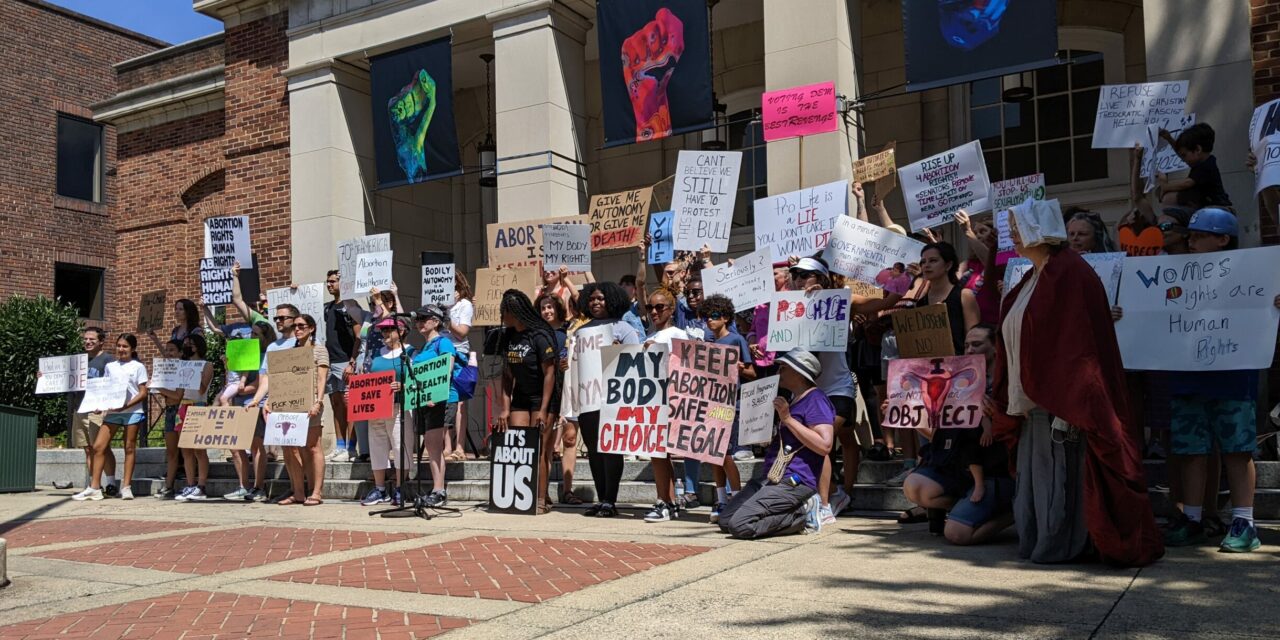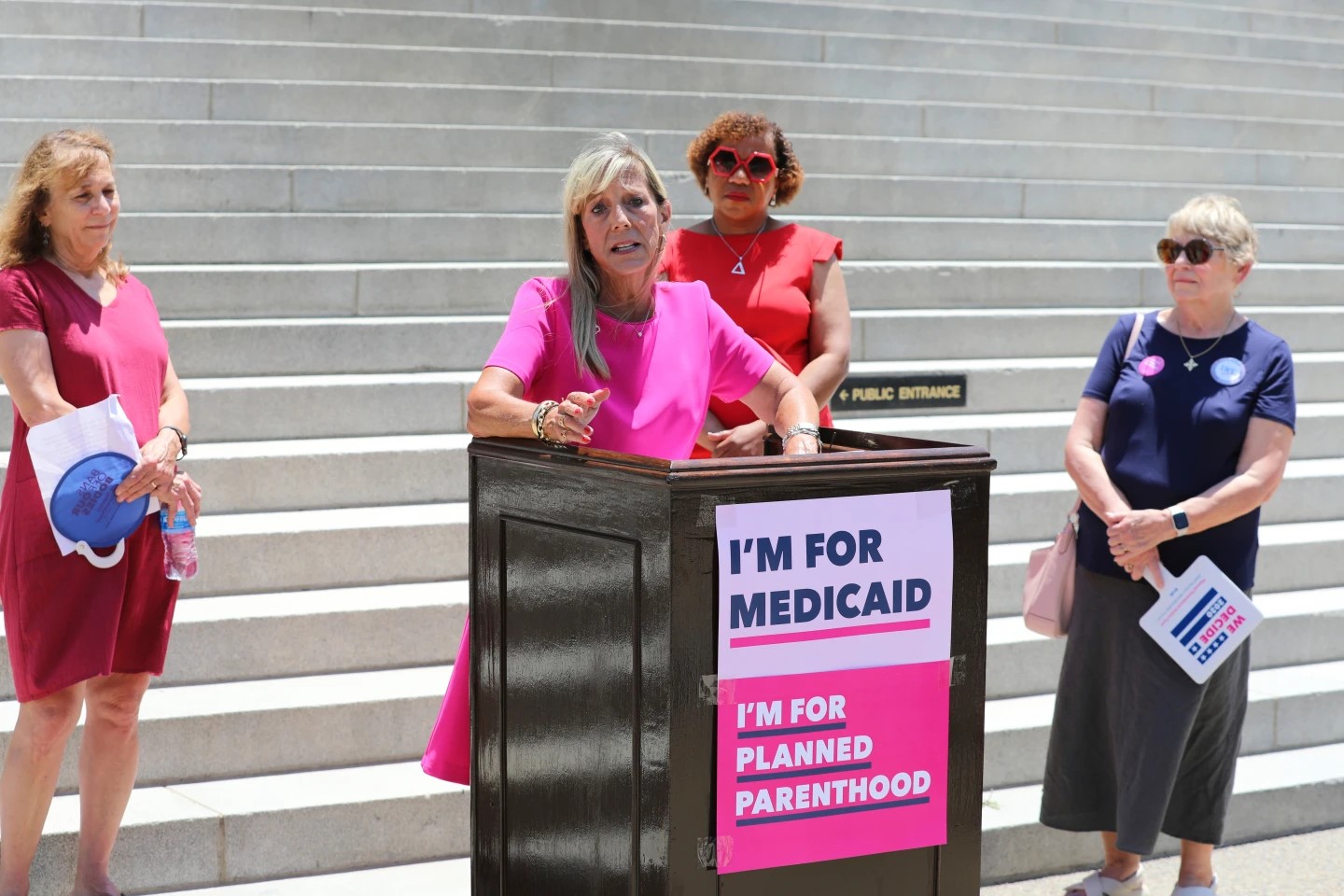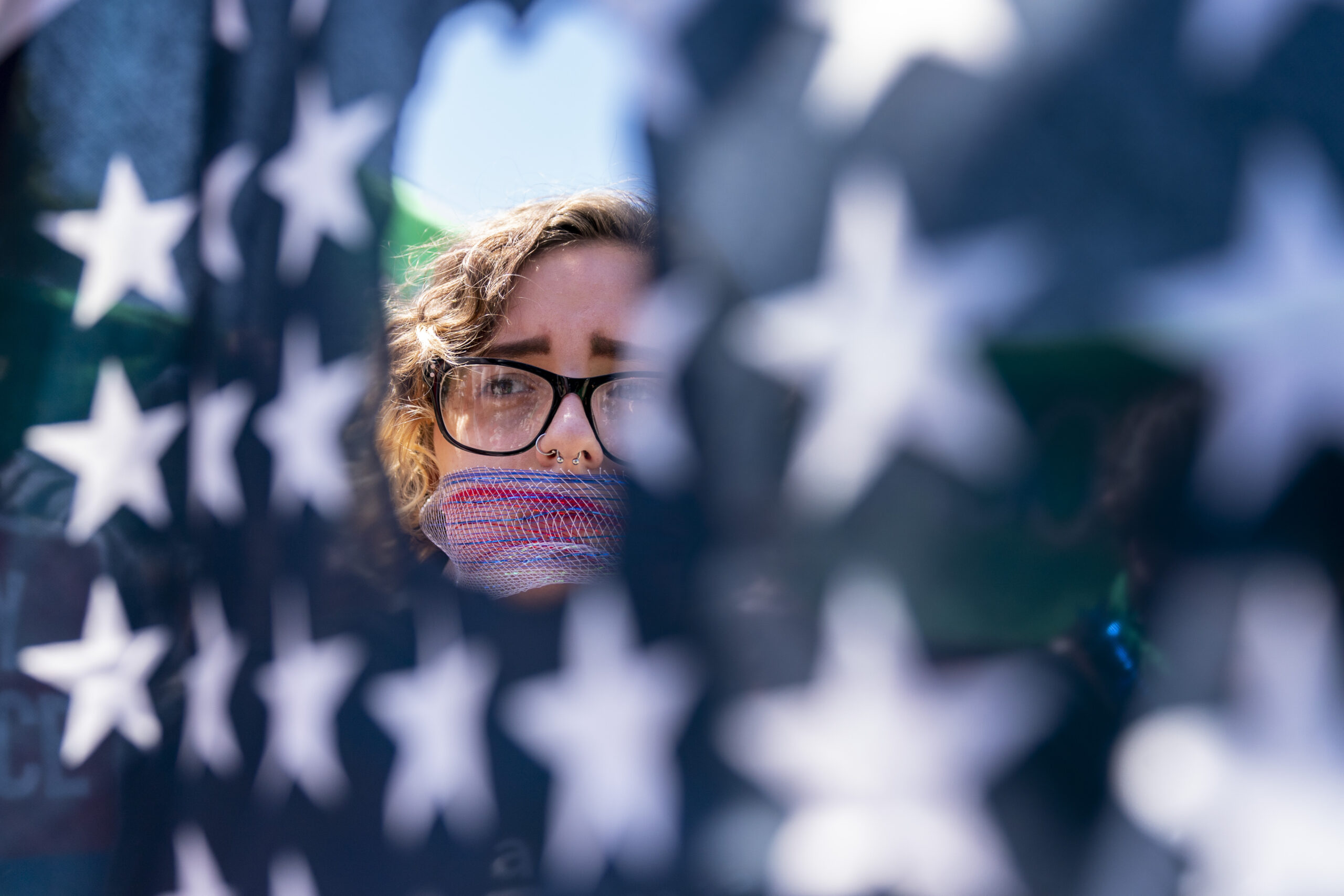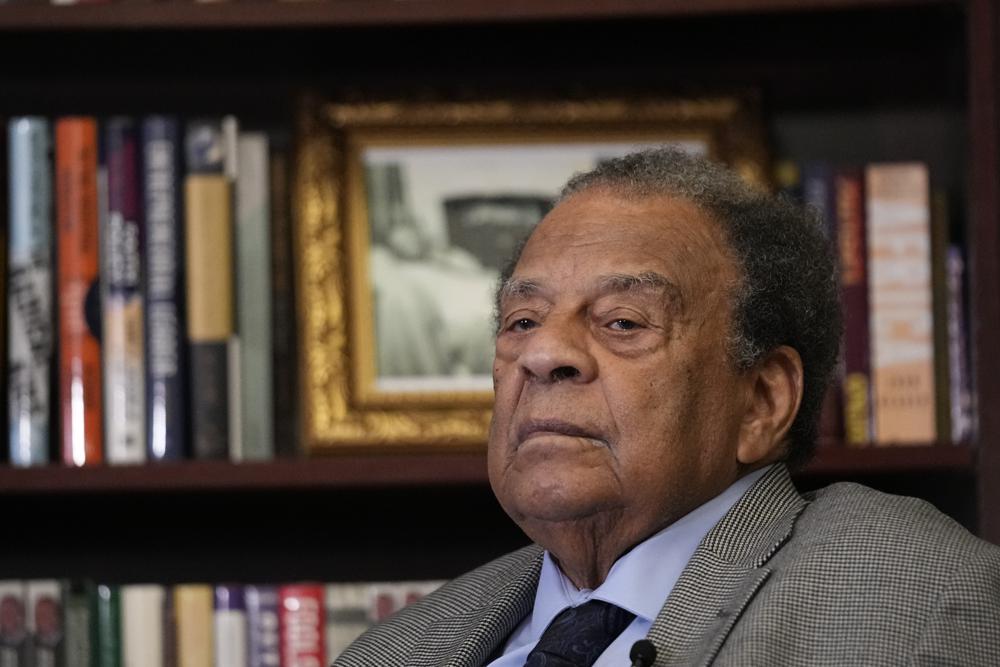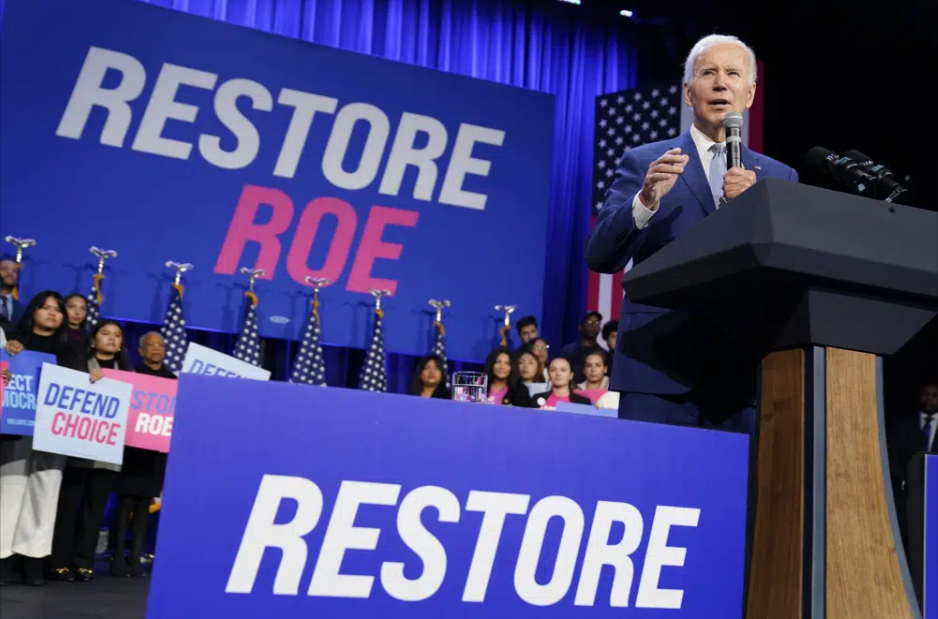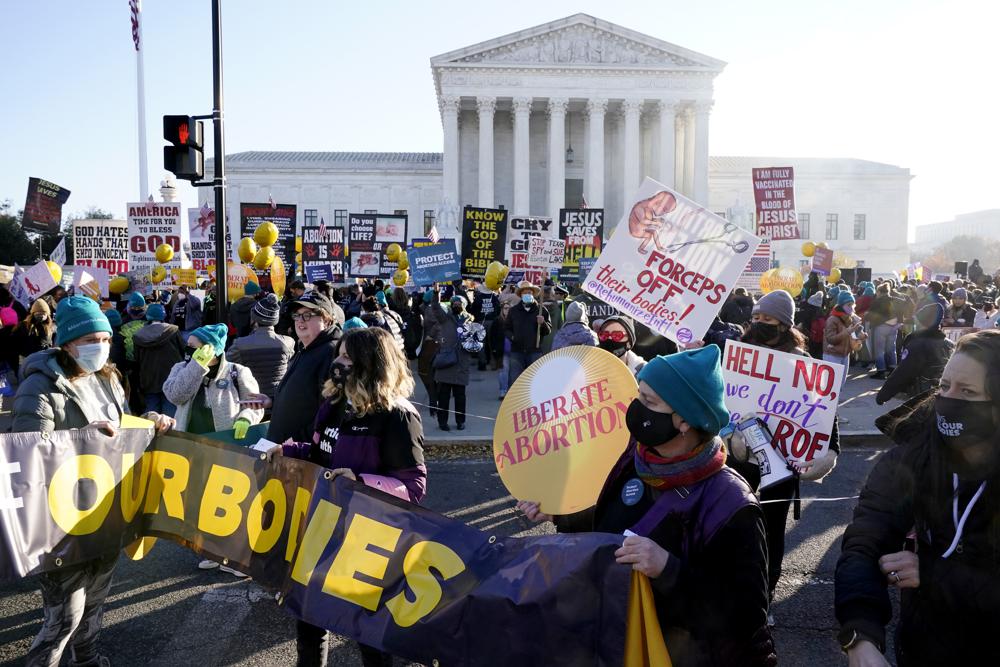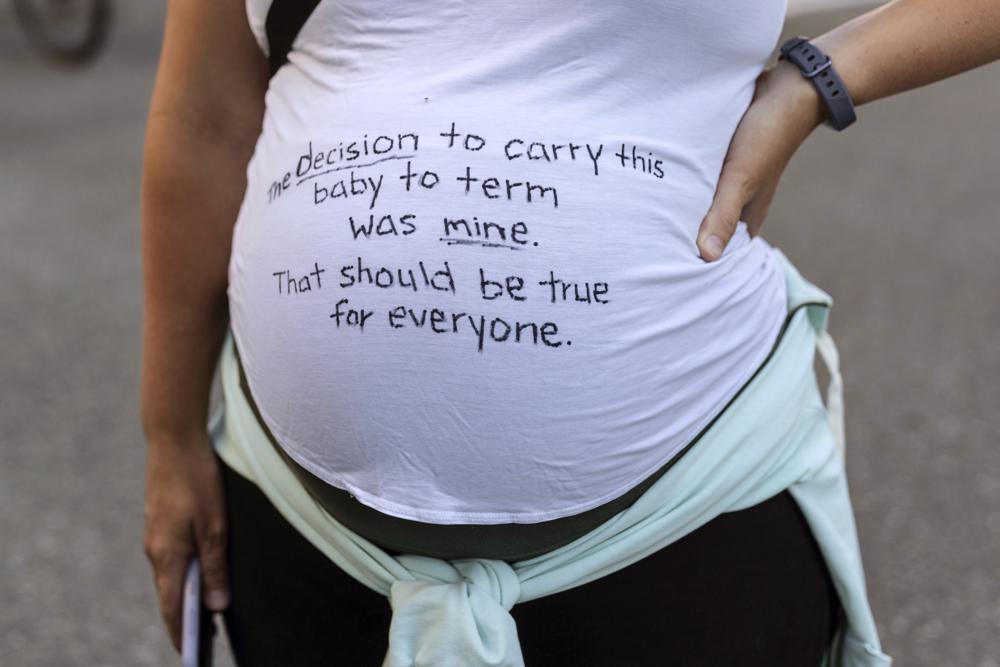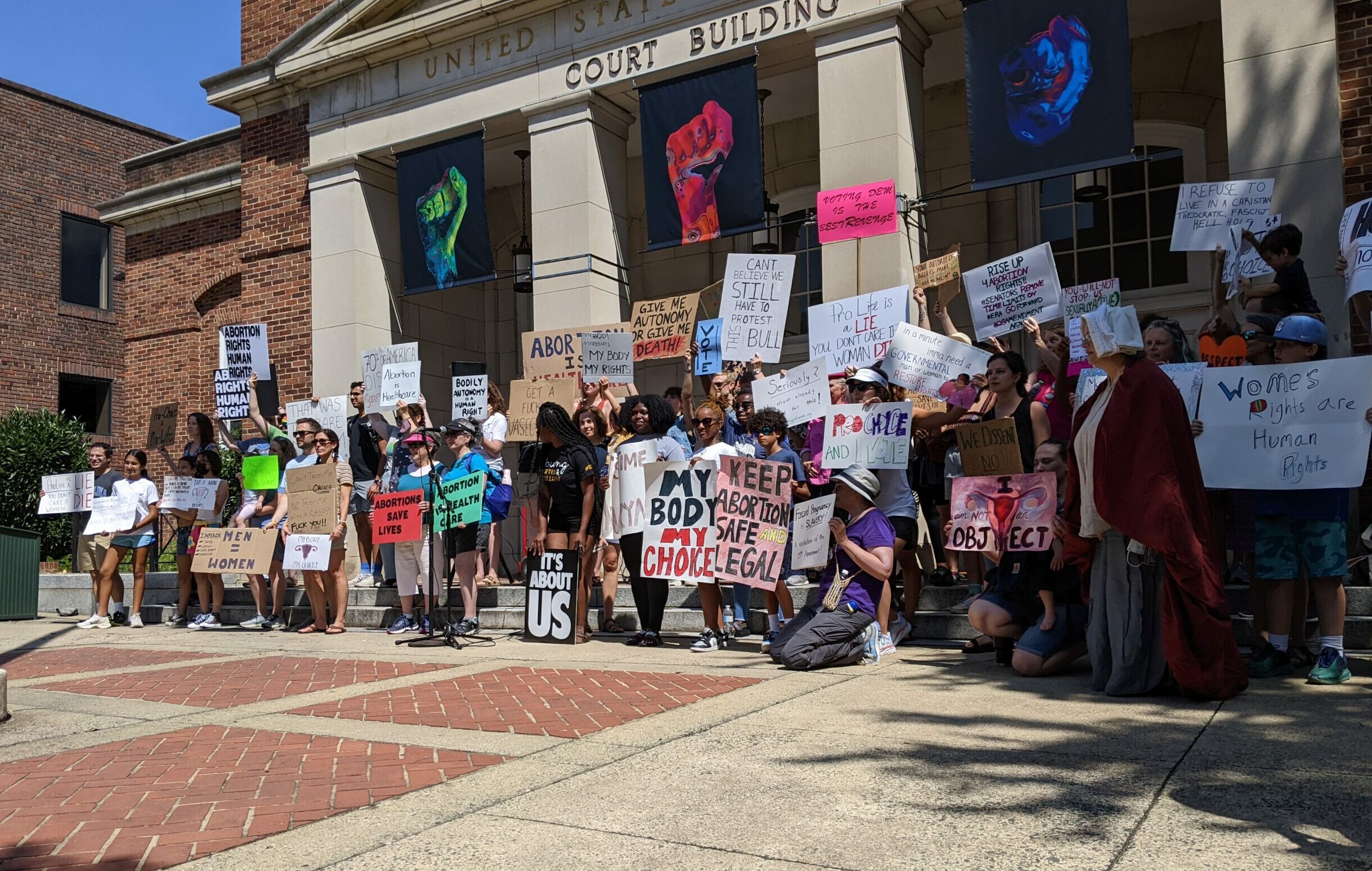“If you know me, you know I like to get personal,” Chapel Hill Town Council member Camille Berry said to introduce herself to a crowd gathered at Peace and Justice Plaza. “So let’s get personal.”
Over the next several minutes as she stood on East Franklin Street Saturday morning, Berry recounted her pregnancy in 1993, which happened just two years after having her first child. She said the doctor kept having her return for additional visits, more so than her first pregnancy.
“Turns out, in her opinion, I was experiencing a threatening miscarriage,” said Berry. “I could let the pregnancy continue and hope for the best. But her in expert opinion, I should seriously consider an abortion. So we went home and we cried, and we thought and we thought. A few weeks later, we said we’re ready: we made our decision [to terminate the pregnancy.]
“I was doing it because there was a huge risk I was not willing to take,” the town council member continued. “There was a risk of life — yes, there were two lives, but there were two others as well. If something had happened to me, imagine [the result for] my partner and my small child. In that situation, my personal situation, we were able to make that decision. It was our choice, it was my choice.”
Berry’s story was just one testimony of several people who spoke during the Chapel Hill-Carrboro NAACP’s gathering to advocate for women’s rights and access to abortion. The event came approximately 24 hours after the country learned the United States Supreme Court’s ruling in Dobbs v. Jackson Women’s Health — a ruling which overturned the court’s previous decisions about federal protections for abortions, like Roe v. Wade.
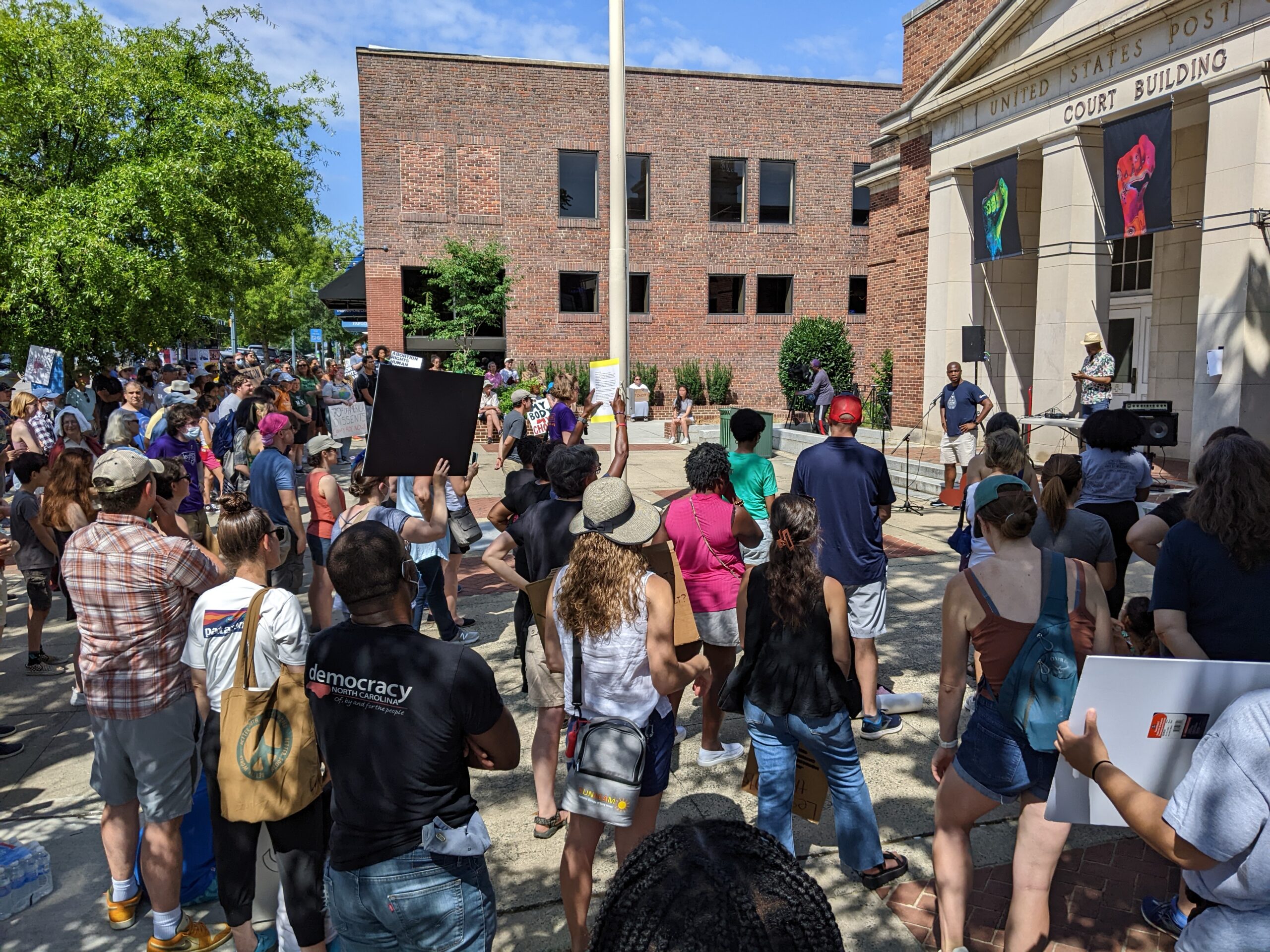
Rep. Allen Buansi speaks to a crowd at a Chapel Hill-Carrboro NAACP gathering at the Peace and Justice Plaza about defending abortion access.
Elected leaders, NAACP members and other community advocates lined up at the microphone to share their emotions around the ruling and to advocate for better representation reflecting the needs of women and those who can become pregnant.
Lisa Kaylie, a representative of Democratic Women of Orange County, also shared her experience of getting an abortion, as well as having miscarriages and going through menopause. She said in her life, she feels socialized to not speak publicly about such topics.
“But I am over being silent,” Kaylie told the crowd. “I am over being quiet to protect others from being uncomfortable. My experiences are not unique. Every woman I’ve shared my stories with have shared similar stories, and that’s why we’re all here today. It’s time to start telling the truth. We have to take steps to protect other women and to save our democracy.”
Some speakers, including Orange County Commissioner Anna Richards, bemoaned the fact they protested for the right to safe abortion access before Roe v. Wade was passed.
“I was in college [during that time,]” Richards said. “I did this once, I never intended to do this again. What is wrong with us, what is wrong with this country that we are taking rights away? I demonstrated in 1970 and 1971, I celebrated in 1973.”
“Let’s be clear: their decision does not reflect what the majority of Americans want,” she added. “They did it anyway.”
A few miles north in downtown Hillsborough, a protest was being held for the same reasons. Demonstrators gathered along Churton Street near the Historic Orange County Courthouse with signs promoting body autonomy, abortion access and “basic human rights.”
Hillsborough Mayor Jenn Weaver briefly spoke to the crowd and discussed her own experience having had an abortion. She shared similar sentiments as Richards regarding the research into how many Americans believe abortion should be legal.
“The right to safe and legal abortion…the want and desire for that is held in majorities across both major political parties,” said Weaver. “That’s really important to remember: this is one time where being in Orange County is not a bubble. We are part of the majority of people living in this country, above all parties, races and genders.”
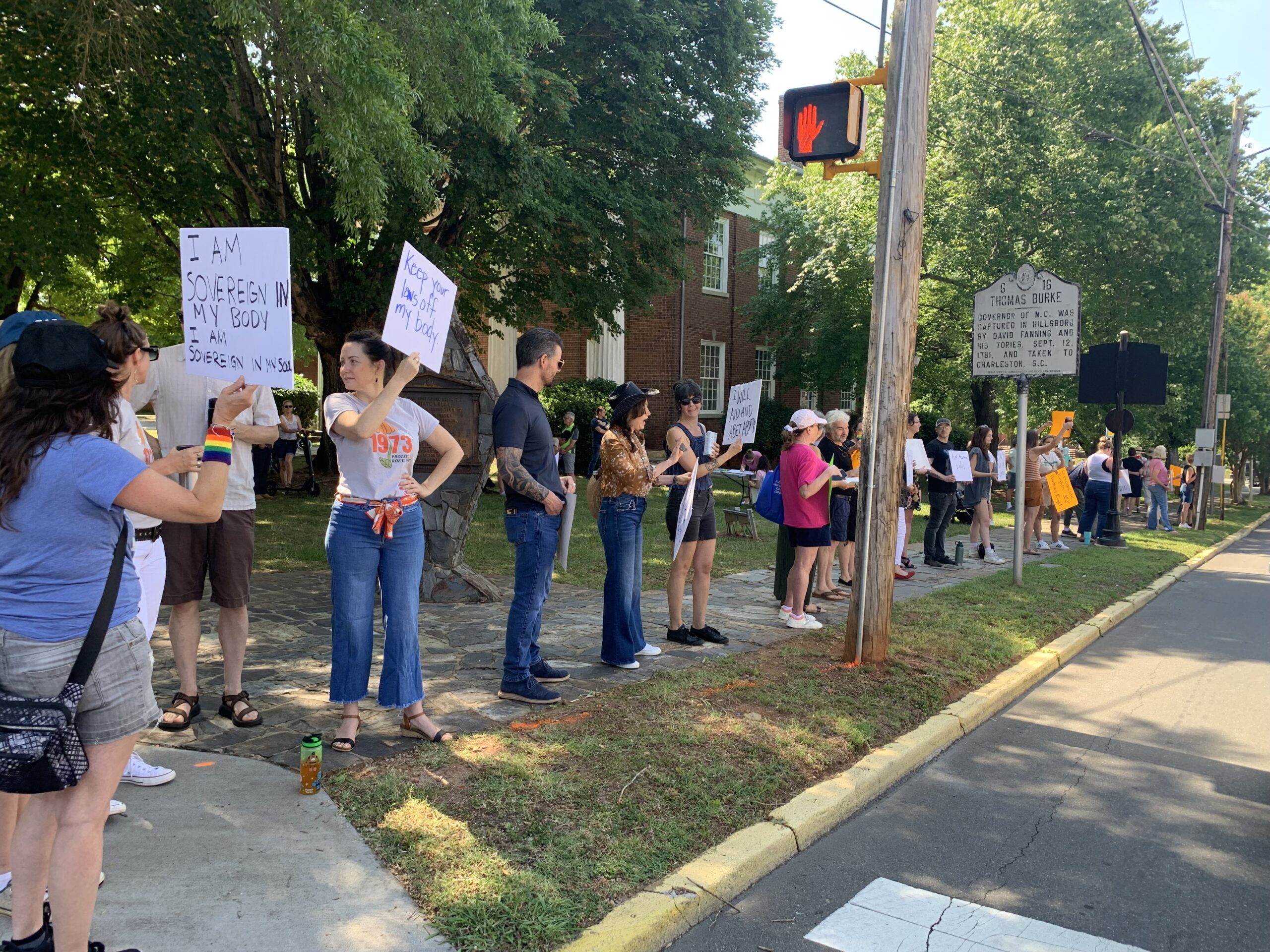
A crowd of demonstrators along Churton Street hold signs advocating for abortion and women’s health on June 27, 2022. People gathered to protest the U.S. Supreme Court’s decision to overturn Roe v. Wade and eliminate federal protection for abortion access.
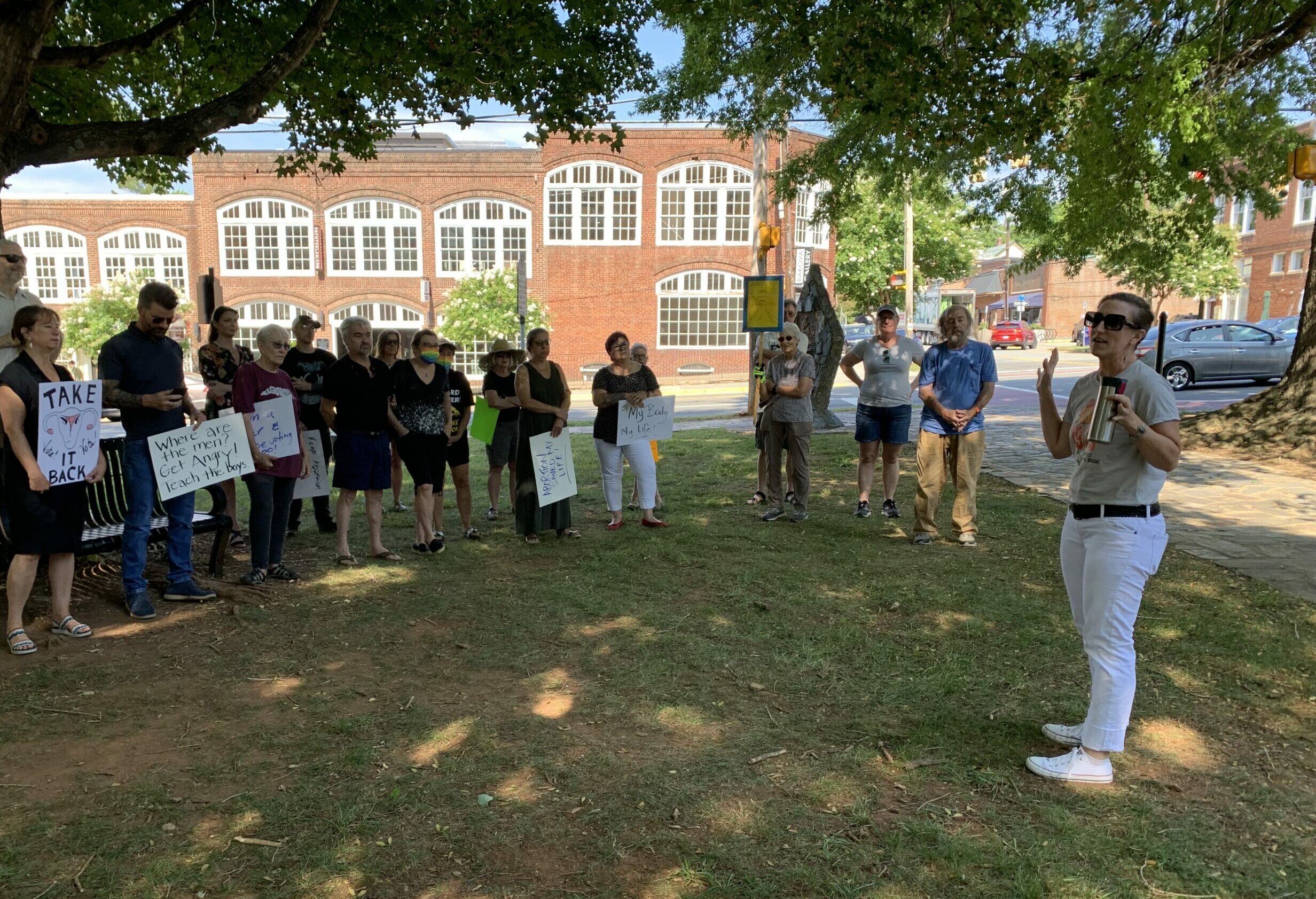
Hillsborough Mayor Jenn Weaver speaks to a crowd of demonstrators at the Historic Orange County Courthouse on June 27, 2022. People gathered to protest the U.S. Supreme Court’s decision to overturn Roe v. Wade and eliminate federal protection for abortion access.
With the Supreme Court’s ruling, the power to protect or ban safe and legal abortions now lies in state governments’ control. Because of trigger laws in place, Roe v. Wade being overturn automatically made surgical abortion in 16 states illegal. North Carolina is not one of those, with the state maintaining framework for abortion access. Republican legislators in the General Assembly, however, shared statements on Friday saying introducing bills to reform abortion regulations would be high among their priorities in 2023.
Knowing that, and knowing many Americans saw their access to abortions cut down on Friday, many of the speakers expressed frustration and fear for the country’s future. That included UNC student body president Taliajah “Teddy” Vann, who said she feels afraid for what life after graduation will look like because she believes “the country is moving backward.”
Vann said, however, that those who will now fight for the same rights as before Roe v. Wade do not have to follow the same blueprint.
“A lot of what I’ve heard [in] the discourse among our generation lately is: we do not have to continue to work against these systems in the ways we’ve always been told,” said Vann. “You don’t have to feed into any kind of respectability politics, you don’t have to go about this in the way you’ve [seen before]. We don’t have to go about overturning the overturning of Roe v. Wade the way it was done in 1973.”
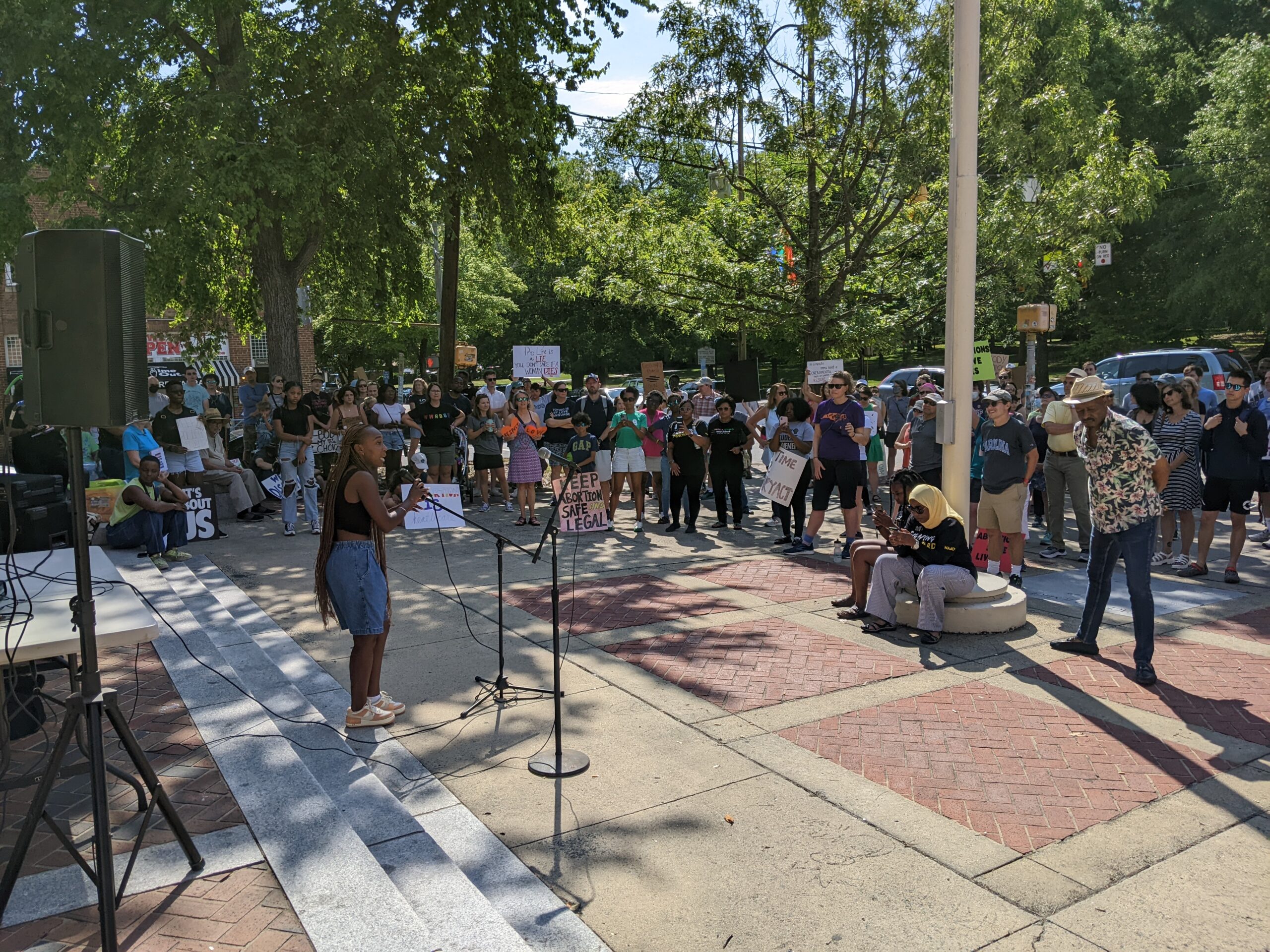
UNC student body president Taliajah “Teddy” Vann speaks to the crowd at a Chapel Hill-Carrboro NAACP gathering at the Peace and Justice Plaza about defending abortion access.
President of the Chapel Hill-Carrboro NAACP Dawna Jones expressed similar sentiments, saying she is “tired” of Black women largely carrying the burden of activism while also being the population most affected by changes to abortion access. Before ending the rally, she to “draw upon the strength” of the Black women in attendance and issue a call to action for other community members to take up the mantle.
“This is not just a day for us to come out here, take a couple of pictures and say we did something,” said Jones. “This is a day for us to get down to business. That means lifting up these voices that you see standing here. That means not saying, ‘thank you for doing the work,’ it means [saying], ‘what can I do to help you do the work?'”
Many speakers also shared their belief that mobilizing and participating in the November mid-term elections would help prevent further change to abortion laws. Rep. Allen Buansi, who serves as Chapel Hill and Carrboro’s elected official in the North Carolina House of Representatives, was among those who urged for protestors to “remember in November.”
“We’ve got to elect people who are going to preserve that ability for [a governor’s veto] to not be overridden,” he told Chapelboro. “It’s not just important to vote, but to be helping candidates in other districts to get elected.”
Buansi also added that he believes it’s important for Friday’s ruling to not discourage people past the point of participating in elections or activism.
“For the young people out there,” Buansi said, “we cannot lose hope. Yesterday was devastating, but the thing is, we’ve overcome before. We’ve overcome with the leadership and the involvement with young people, so the day that the young people count themselves out is the day that we lose.”
Chapelboro.com does not charge subscription fees, and you can directly support our efforts in local journalism here. Want more of what you see on Chapelboro? Let us bring free local news and community information to you by signing up for our biweekly newsletter.

